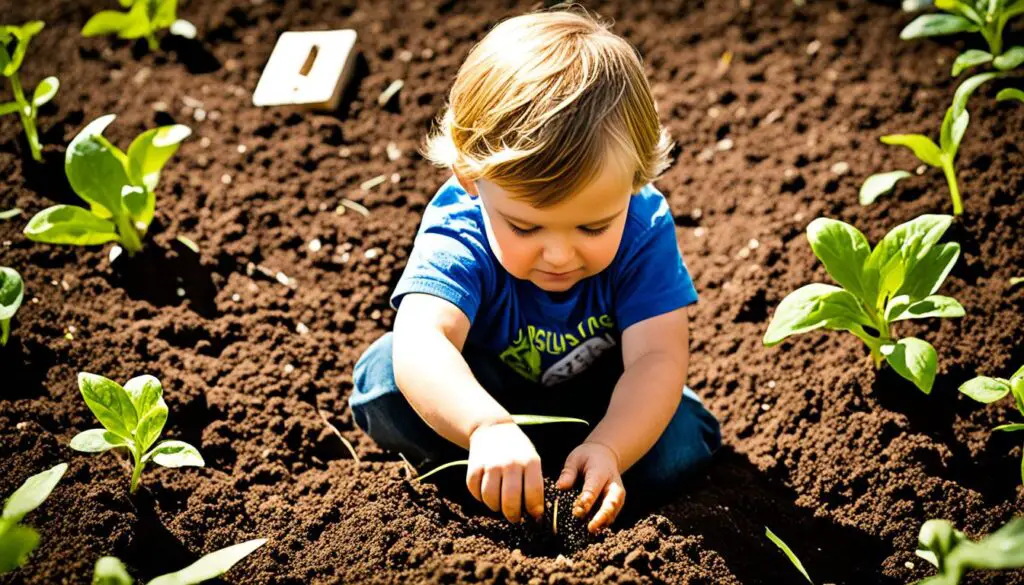
Calm Amidst Chaos: Solutions for Childhood Anxiety
Childhood anxiety is a growing concern in today’s challenging world. As a parent and caregiver, I understand the impact anxiety can have on children and the importance of finding effective solutions to help them find peace and resilience.
It is crucial to empower children and provide them with the necessary tools to cope with anxiety, enabling them to navigate life’s challenges with confidence. By fostering childhood resilience, we can create a calm environment amidst the chaos.
Key Takeaways:
- The prevalence of childhood anxiety is increasing in today’s society.
- Empowering children is essential in helping them cope with anxiety.
- Building resilience and self-efficacy supports a positive mindset.
- Creating a safe and loving environment is crucial for children’s mental health.
- Consider seeking professional help when necessary.
Building Resilience and Self-Efficacy in Children
Building resilience and self-efficacy in children is crucial in combating anxiety. Research from reputable sources suggests the following strategies:
1. Promote a Positive Mindset
Encourage children to develop a positive mindset by focusing on their strengths, abilities, and past successes. Help them reframe negative thoughts into positive affirmations, fostering a sense of self-worth and confidence.
2. Foster Coping Skills
Teach children healthy coping skills that can be utilized when faced with anxiety-inducing situations. These may include deep breathing exercises, mindfulness techniques, journaling, or engaging in hobbies and activities they enjoy.
3. Support Emotional Expression
Validate and encourage children to express their emotions openly. Create a safe space where they feel comfortable discussing their worries and fears, allowing them to process their feelings and develop emotional intelligence.
4. Provide Opportunities for Independence
Allow children to take on age-appropriate responsibilities and make decisions, fostering a sense of autonomy and self-efficacy. Gradually increasing independence helps build their confidence in handling challenges and setbacks.
5. Encourage Problem-Solving
Guide children in developing problem-solving skills by encouraging them to identify potential solutions and evaluate their effectiveness. This empowers them to approach difficulties with a proactive mindset, building resilience and self-reliance.
Remember, building resilience and self-efficacy is an ongoing process that requires patience and consistency. By cultivating these skills in children, we equip them with invaluable tools to navigate anxiety and thrive in the face of adversity.

| Building Resilience and Self-Efficacy in Children | Benefits |
|---|---|
| Promotes a positive mindset | – Develops self-confidence – Enhances problem-solving abilities |
| Fosters coping skills | – Reduces stress and anxiety – Improves emotional regulation |
| Supports emotional expression | – Enhances emotional intelligence – Strengthens communication skills |
| Provides opportunities for independence | – Builds self-esteem and self-reliance – Encourages personal growth |
| Encourages problem-solving | – Develops critical thinking skills – Increases resilience in the face of challenges |
Conclusion
Childhood anxiety is a complex issue that requires a holistic approach. By implementing the strategies mentioned above, parents and caregivers can play a pivotal role in supporting children’s mental health and fostering resilience. It is important to create a safe and loving environment where children feel heard, validated, and supported.
Additionally, seeking professional help when necessary can provide additional guidance and support. Remember that each child is unique, and it may take time to find the most effective approach for managing their anxiety. With patience, understanding, and the right resources, we can help children navigate the challenges of anxiety and empower them to thrive amidst chaos.
Supporting children’s mental health is crucial for their overall well-being. By addressing childhood anxiety and equipping children with the necessary coping skills, we can empower them to overcome challenges, develop resilience, and lead fulfilling lives. Let us work together to create a world where children are supported in their journey towards mental and emotional well-being.
FAQ
What is childhood anxiety?
Childhood anxiety refers to excessive worry, fear, and unease that children experience in various situations. It can manifest as physical symptoms such as restlessness, stomachaches, and trouble sleeping.
How common is childhood anxiety?
Childhood anxiety is a prevalent issue, affecting approximately 10-20% of children worldwide. It is important for parents and caregivers to be aware of the signs and symptoms to provide appropriate support.
What are some signs of childhood anxiety?
Children with anxiety may exhibit behaviors such as excessive worrying, avoidance of certain activities, difficulty concentrating, irritability, and seeking constant reassurance.
How can parents and caregivers help children cope with anxiety?
Supporting children in coping with anxiety involves creating a safe and loving environment, actively listening to their concerns, providing validation, and offering reassurance. Encouraging healthy coping mechanisms such as deep breathing exercises and journaling can also be beneficial.
When should I seek professional help for my child’s anxiety?
If your child’s anxiety significantly interferes with their daily life, relationships, and academic performance, or if you notice severe physical symptoms, it is important to consult a mental health professional for further evaluation and guidance.
Are there any natural remedies or techniques that can help reduce childhood anxiety?
While each child is unique and may respond differently, some techniques to help reduce anxiety include mindfulness and relaxation exercises, engaging in regular physical activity, maintaining a balanced diet, and ensuring adequate sleep.
How can building resilience in children help with anxiety?
Building resilience in children involves teaching them effective coping skills, fostering a positive mindset, and encouraging problem-solving abilities. These attributes can help children manage anxiety and bounce back from challenges.